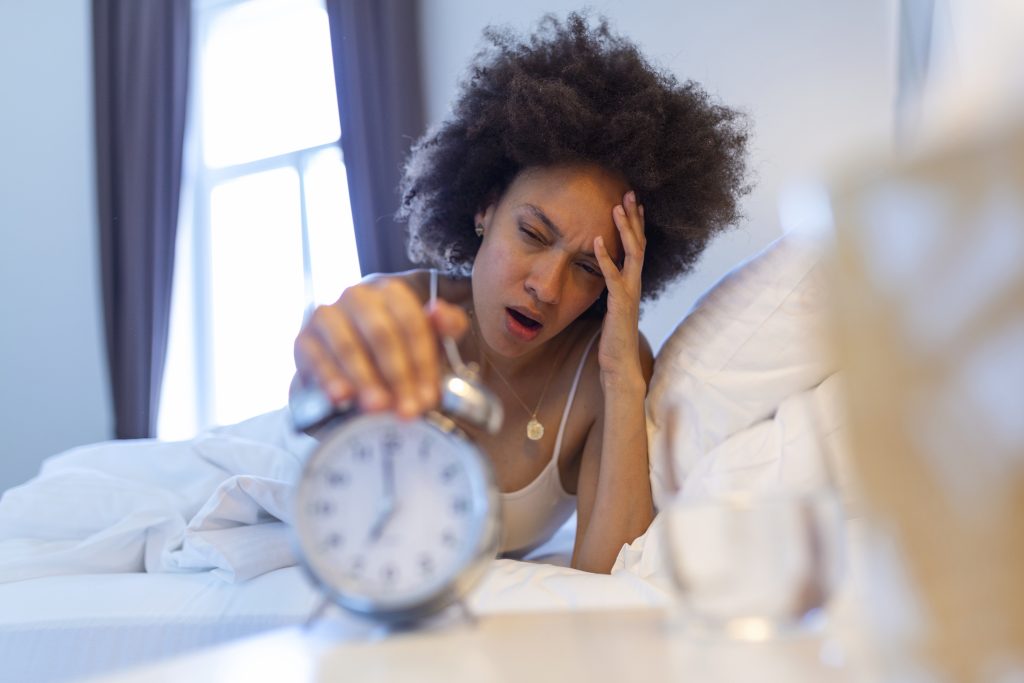
Sleep Hacks for Test Anxiety: How I Calm My Mind Before Big Exams
I’ll be the first to admit—I’m no stranger to anxiety. For me, it tends to flare up during stressful times at work, when life feels overwhelming, or during big milestones, like graduating from college or preparing for my licensing exam to become a Licensed Educational Psychologist (LEP). Over time, I’ve noticed one clear signal that anxiety is knocking on my door: sleep troubles.
Most nights, I can fall asleep pretty easily, but when my anxiety is high, I’ll wake up at 2 or 3 a.m. and find myself lying there wide awake with my mind racing. For some people, the challenge is the opposite—they can’t fall asleep at all. Both, however, are telltale signs of elevated anxiety, and they can leave you drained, unfocused, and unprepared for the mental demands of test day.
I’ve learned that when my sleep starts slipping, it’s time to pull out some tools. Over the years, I’ve collected a handful of “sleep hacks” that help me calm my mind and drift into more restful sleep. If you’re struggling with test anxiety—or just navigating a stressful season of life—maybe some of these will help you too.
Mindfulness Meditation (and the Headspace Series on Netflix)

One of the first strategies I turn to is mindfulness meditation. When I was studying for my licensing exam, I discovered that simply learning to slow my breath and bring my focus back to the present moment could calm that middle-of-the-night mind chatter.
If you’re new to meditation, I recommend starting with something guided. The Headspace series on Netflix makes it super approachable with short episodes that actually walk you through the process. Every episode is about 30 minutes and includes about 15 minutes of lesson on a topic related to anxiety and then 15 minutes of a targeted mediation. Even my Kids (14, 11, and 8) will watch an episode from time to time as a way to unwind and get guided meditation before heading off to bed.
Sleep Apps That Do the Heavy Lifting
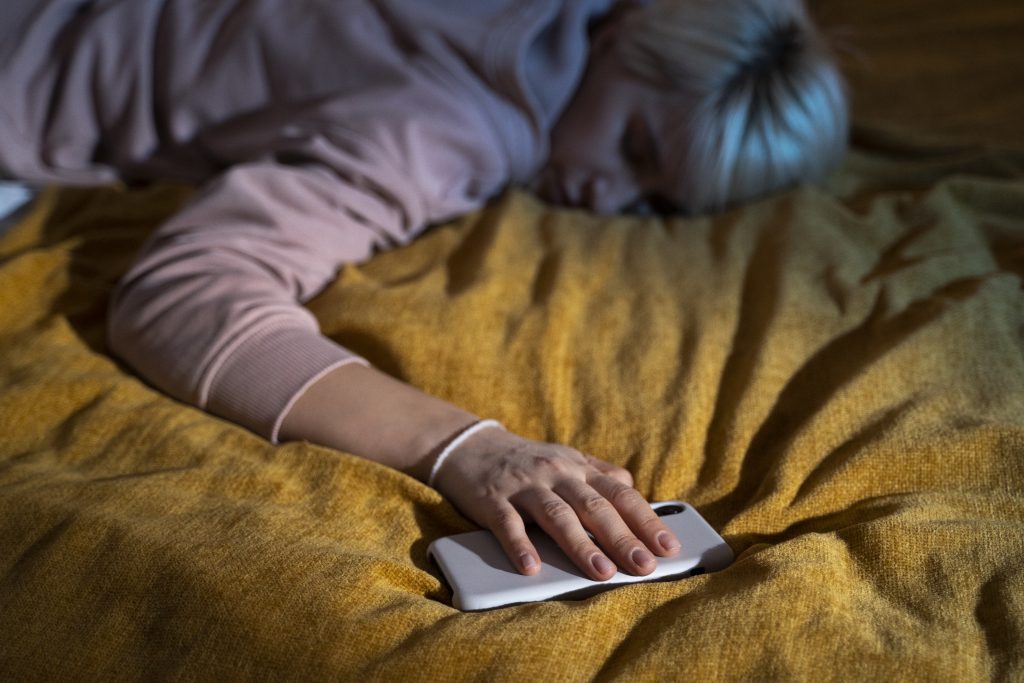
I’ll be honest—sometimes I need more than silence and my own thoughts to fall back asleep at 3 a.m. That’s where sleep apps come in. I often use the “Calm App”, which has everything from bedtime stories read by soothing voices to relaxing music and guided meditations. My favorite sleep story is one by Harry Styles, just don’t tell my husband.
I get the “Calm App” app free my healthcare provider, but there are lots of Apps out there, free or paid. Even just finding a YouTube video for sleep meditation is a good start. Just face your screen away from you and set a timer.
My Plug-in Heated Sleep Mask
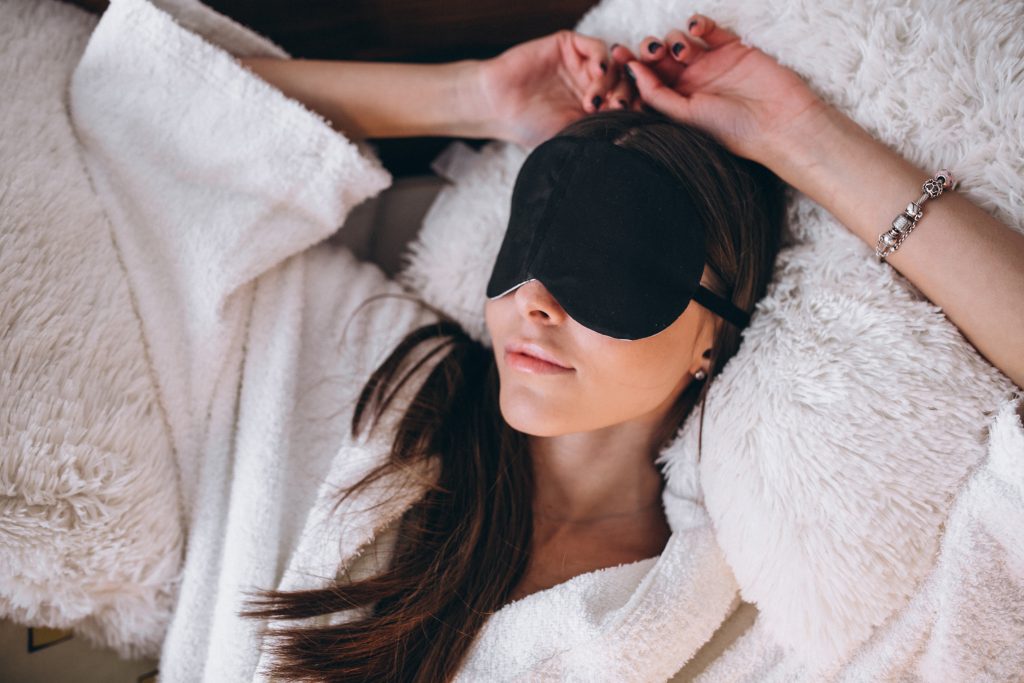
This one feels a little indulgent, but it’s honestly one of my favorite tools: my heated sleep mask. I actually have two! One is for my dry-eye and is a microwaveable mark and the other is a plug-in that charges and keeps the heat for up to 45 minutes. It feels so good! I discovered using an eye mask after being diagnosed with dry eye a few years ago, and while the microwavable kind helps with that, it cools off after 5 minutes and is a bit bulky.
Not only does an eye mask block out light, but the gentle warmth relaxes me in a way that helps my body let go of tension. It’s almost like sending my brain the message, “It’s safe to rest now.” On especially anxious nights, this hack has been a game-changer. It also can work to help return to sleep when my brain wakes up in the middle of the night for a bathroom, or anxiety, break.
A Notebook by the Bed
Here’s a simple one that has saved me countless nights: keeping a notebook right on my nightstand. When my brain decides 2 a.m. is the perfect time to run through my to-do list, replay conversations, or even dream up new ideas, I can grab the notebook and unload it all onto paper.
There’s something about getting those thoughts out of my head and onto a page that helps me to get back to sleep. It’s like telling myself, “Don’t worry, it’s written down. You won’t forget it. Now you can rest.” Sometimes my entries are pure worries, sometimes they’re reminders, and sometimes they’re flashes of inspiration—because, of course, the best ideas always show up when no paper is around.
Powering Down Screens Before Bed
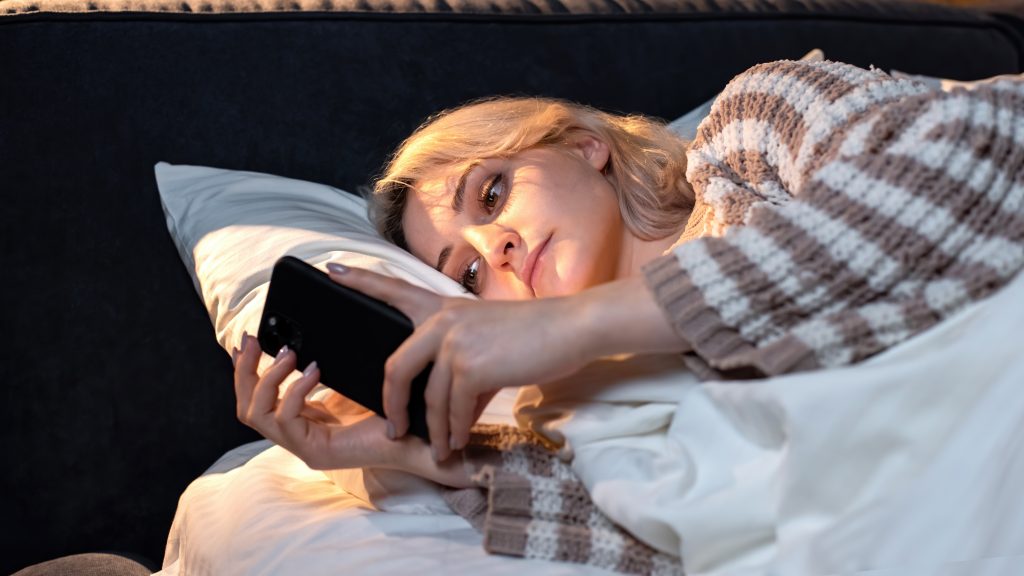
I know that I just said to use an app on your phone, but that’s different than late-night scrolling. When I’m anxious, my first instinct is to distract myself by scrolling through my phone—but I’ve learned that it actually makes sleep harder. Blue light and endless information, that while entertaining is highly stimulatory, keep the brain in awake-mode.
Now, I make an effort to shut down my screens at least 30–60 minutes before bed. Instead, I’ll read a book. This doesn’t mean study until you drop. It means reading for pleasure and telling your brain that the day of worrying and stress is don, journal out my worries and stress are done.
And if you wake up in the middle of the night…don’t start the scroll! I know it’s tempting, but if you aren’t falling back asleep, find something to “bore” your brain, not entertain it, like “Antiques Roadshow” or something on PBS if you really need to distract yourself with a screen.
Creating a Consistent Bedtime Routine
Sleep likes consistency. I used to underestimate how important it was to go to bed and wake up around the same time each day—but it truly makes a difference. Now, I try to treat my evenings like a ritual: watch a little TV with my husband, shower, sometimes do 10 minutes of stretching stretching, and then settle into bed at a regular time with 10 minutes of reading and my eye mask (of course). Over time, my body has learned to expect rest, and it’s made my anxiety about sleeping through the night decrease significantly.
Aromatherapy for Calming the Mind
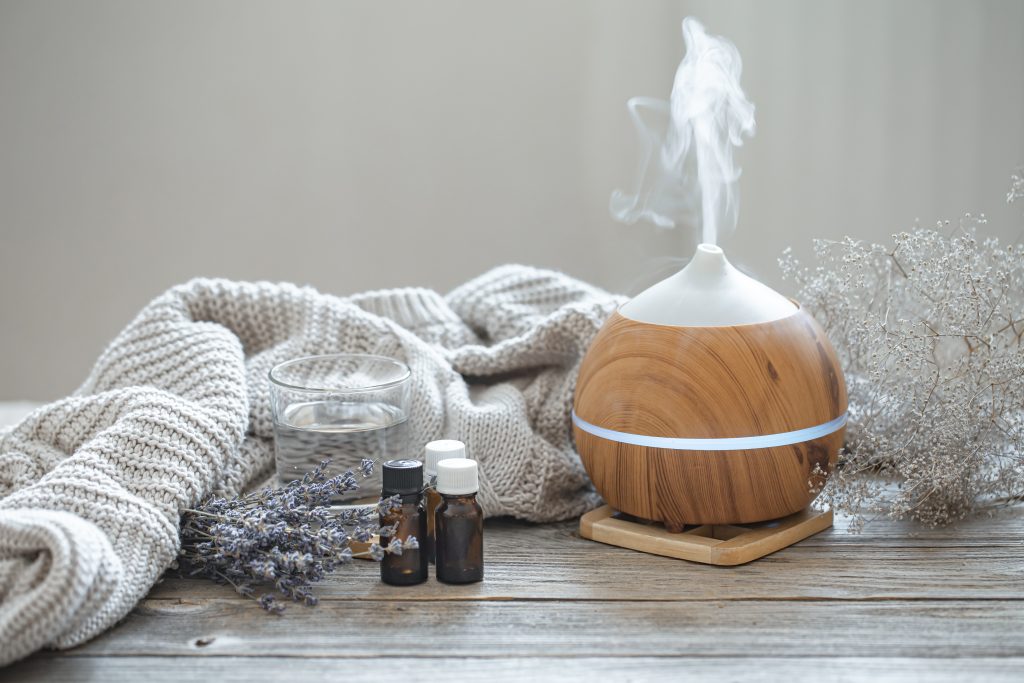
I wasn’t always a believer in aromatherapy, but scents have POWER. When my anxiety is high, using a calming scent like lavender can trigger a sense of calmness. Use the same scent when you are taking your exam with a spray on your shirt or sleeve because when you train your brain with sleep to identify a specific and familiar scent, it can help cue your brain to relaxation. It’s a simple step, but sometimes training our brain to identify scents with calmness can be a real game changer if you have test anxiety.
Closing Thoughts
If you struggle with test anxiety, know this: you’re not alone. Anxiety has a sneaky way of creeping into our nights, but there are tools that can help you calm your mind and reclaim your rest. An sleep is a key component of peak performance on test day. For me, using these different strategies has definitely helped without resorting to medications.
Anxiety often comes and goes as pressures increase and decrease throughout our lives. It is good to know, however, that simple and inexpensive things can really make a difference, however. Try one, two, or a combination of a few of these strategies as you prepare for your next exam. It’s all about personalization. And don’t get anxious if they don’t work right away! All good things in life, especially sleep, take time, practice, and patience. So, good luck, and sweet dreams!